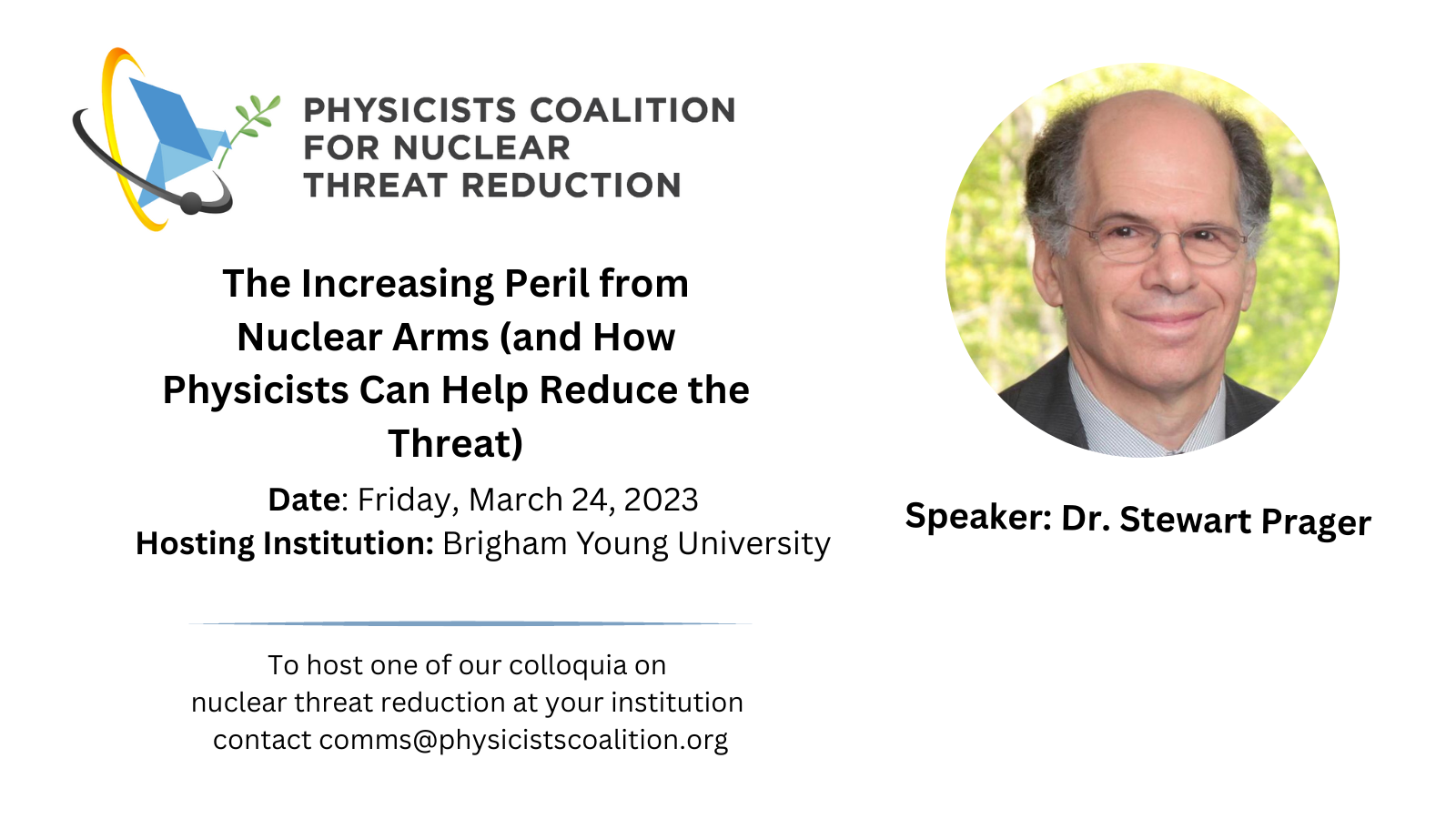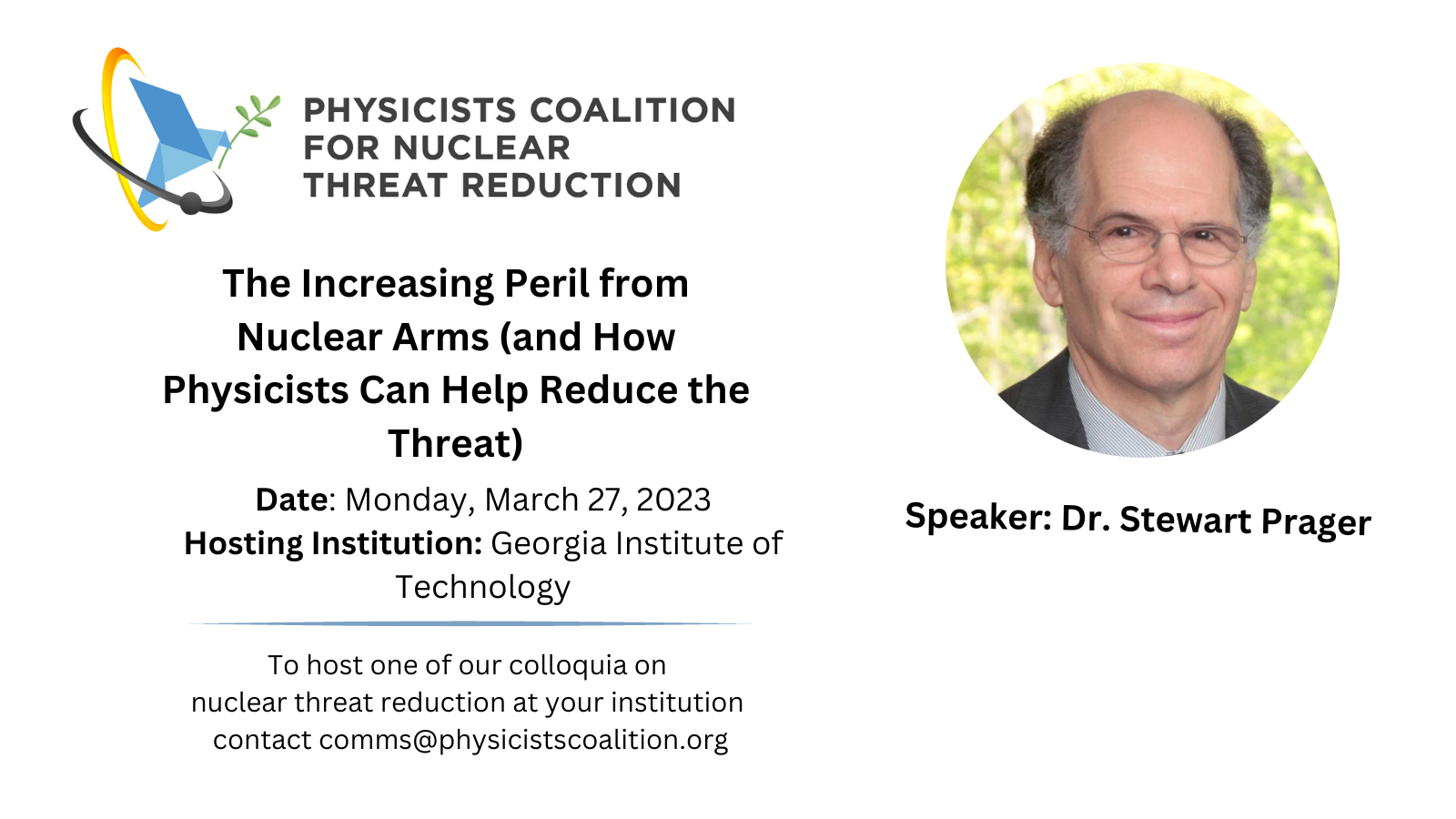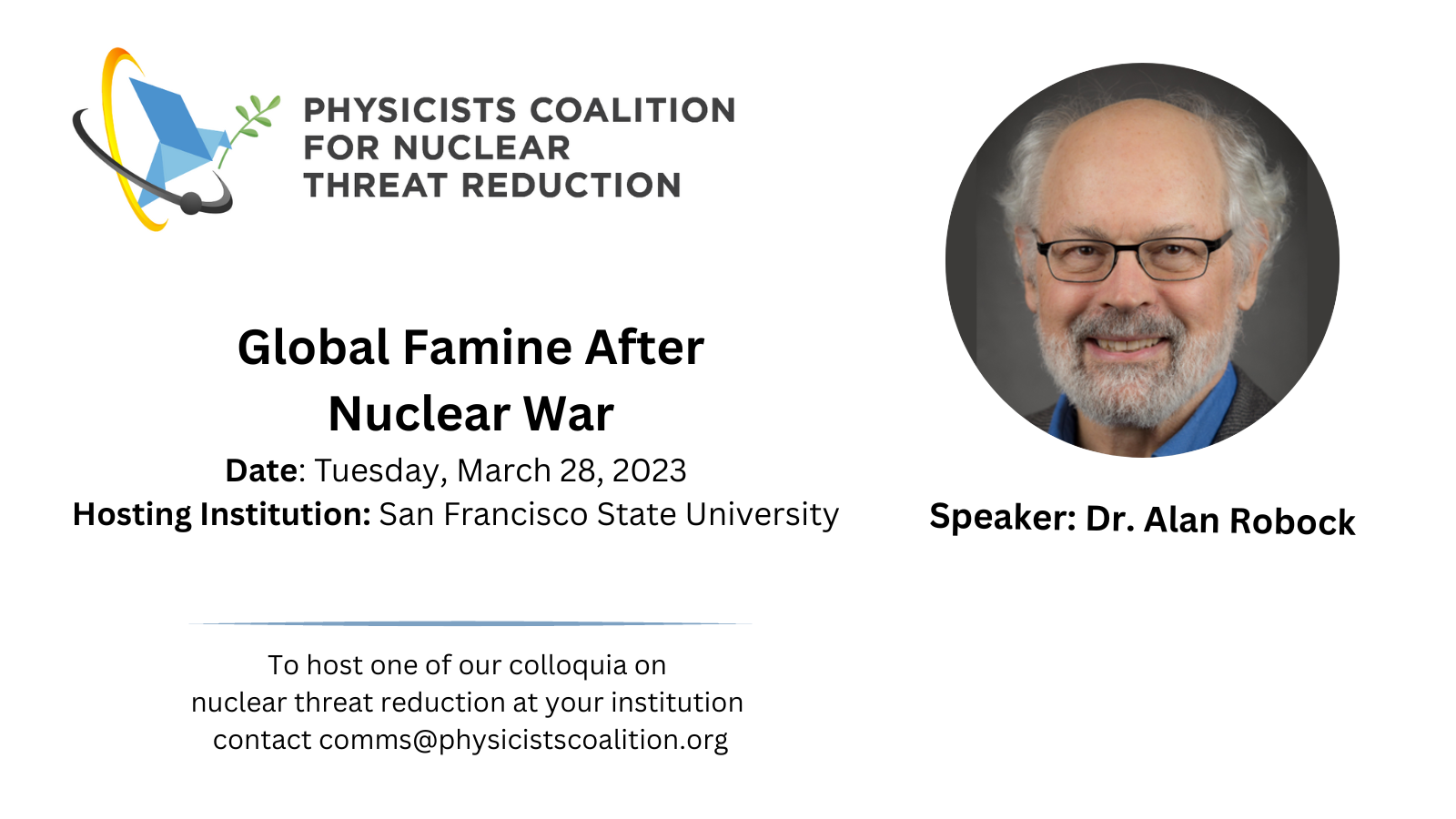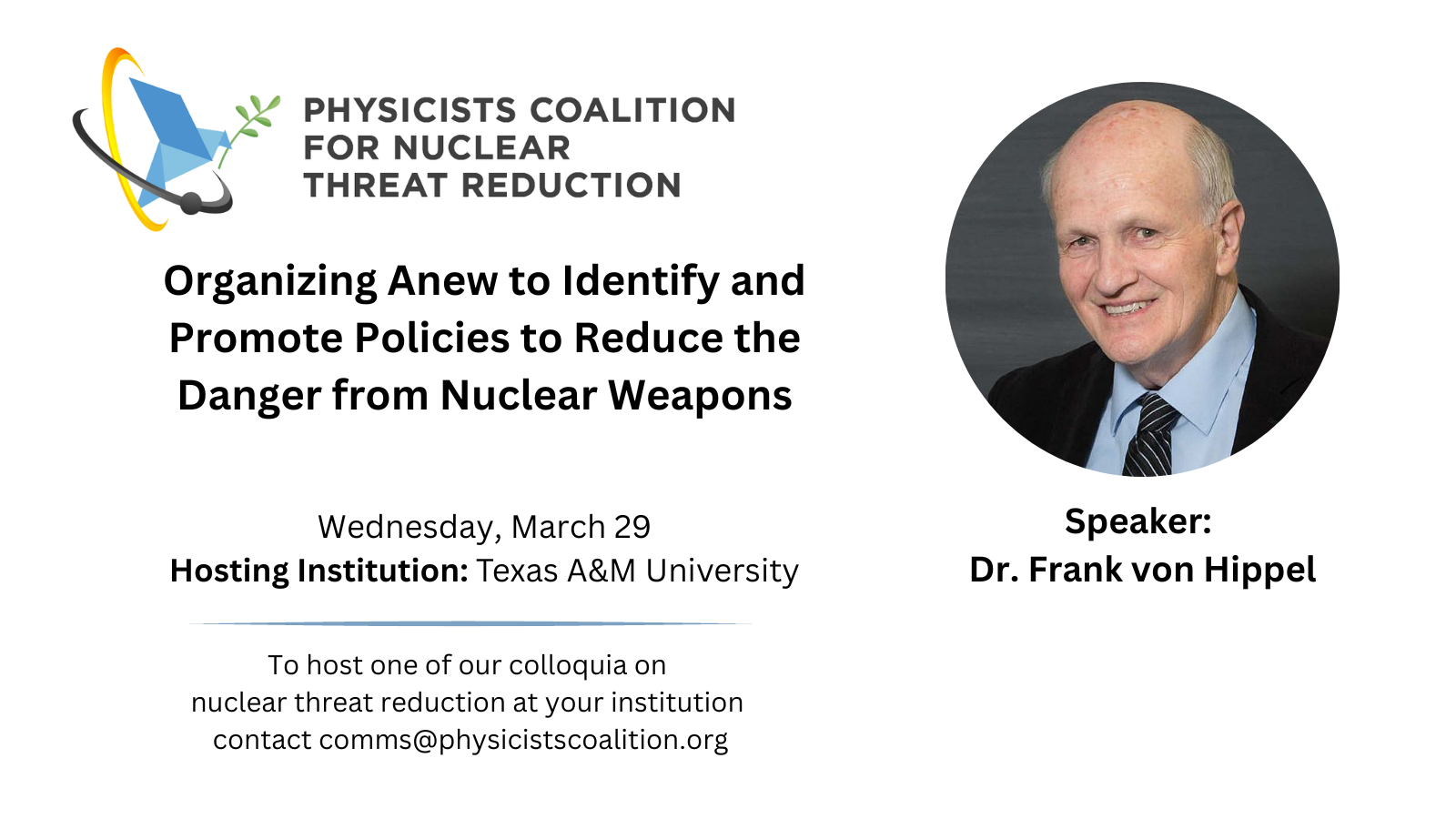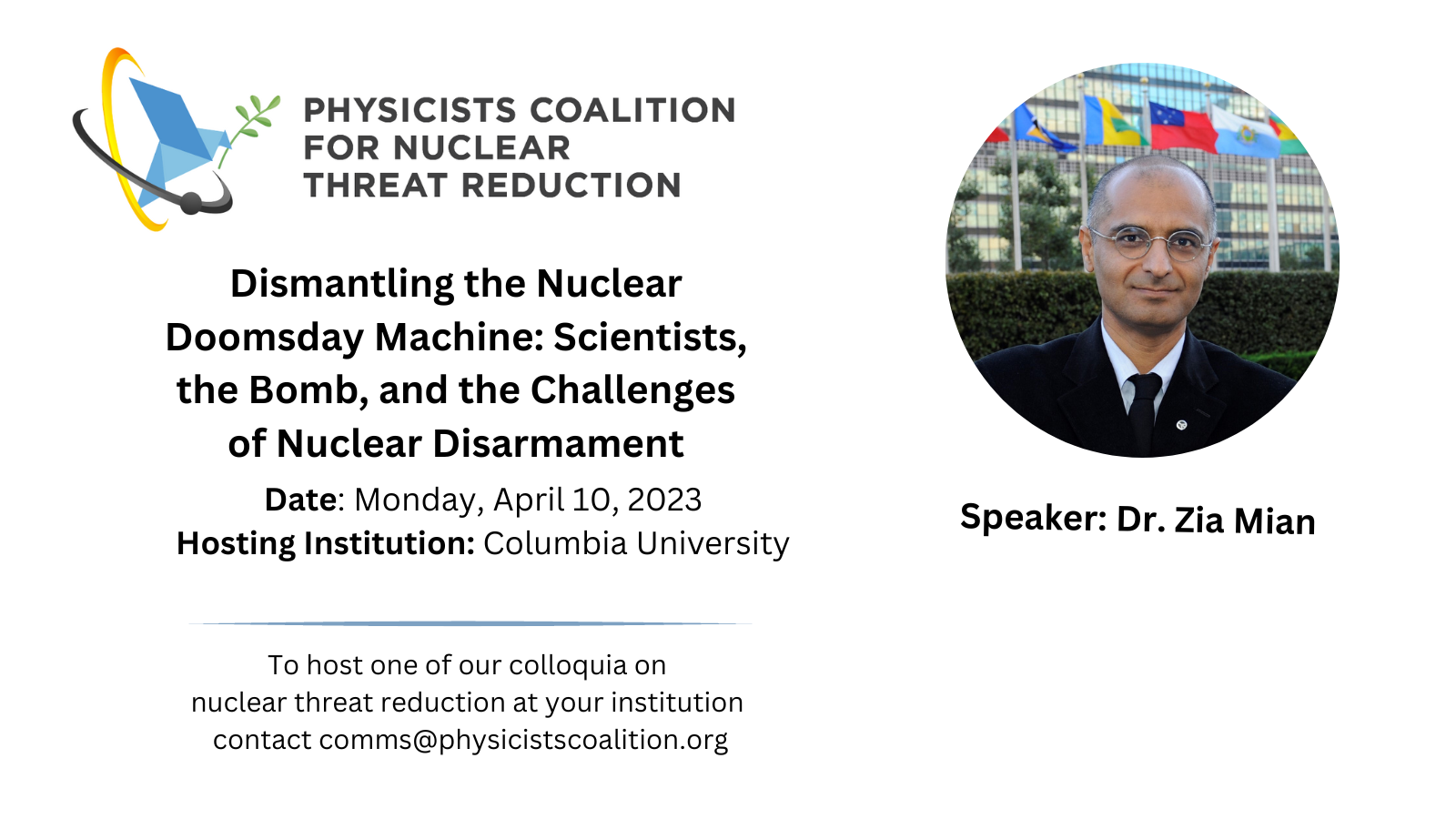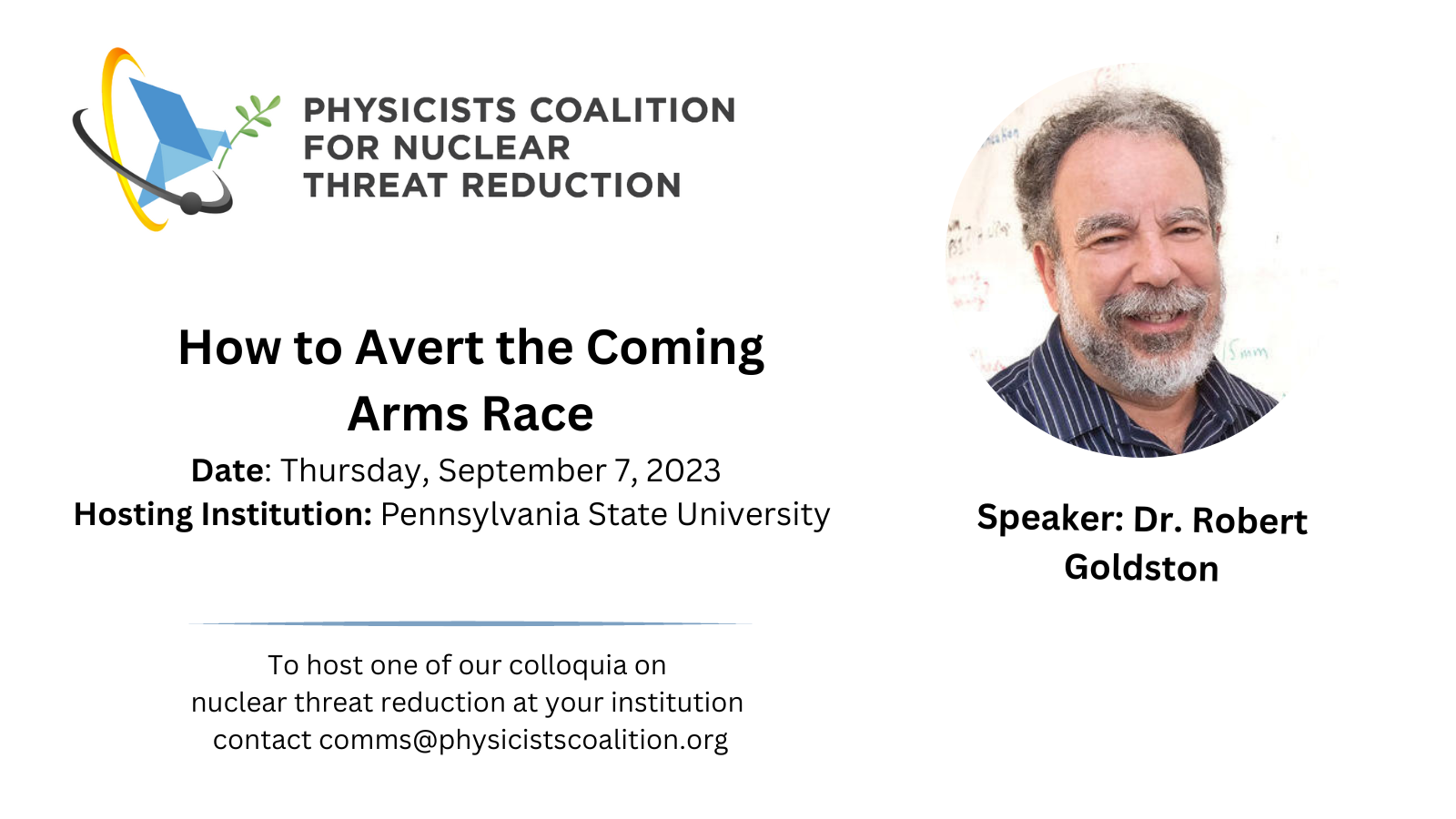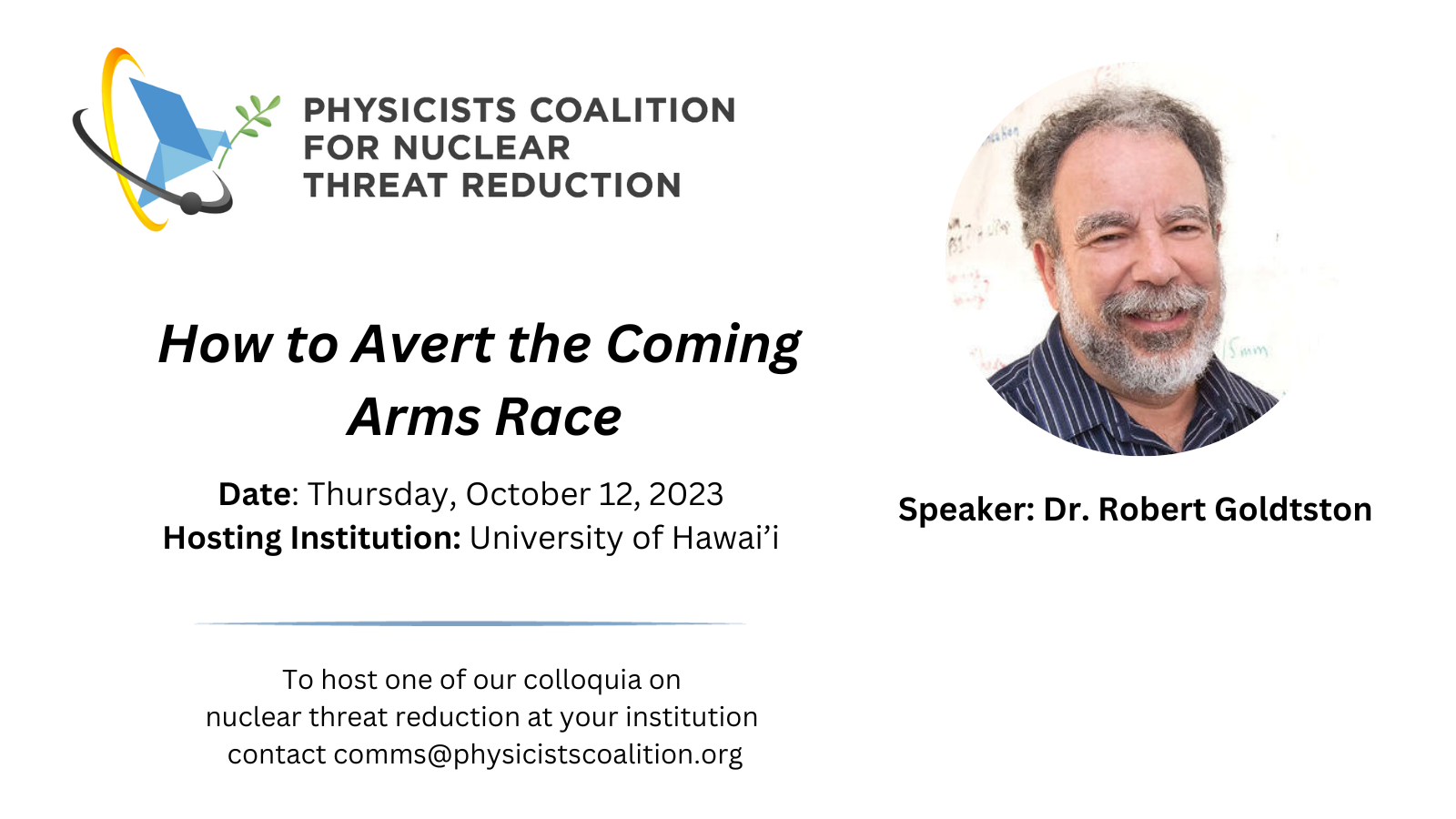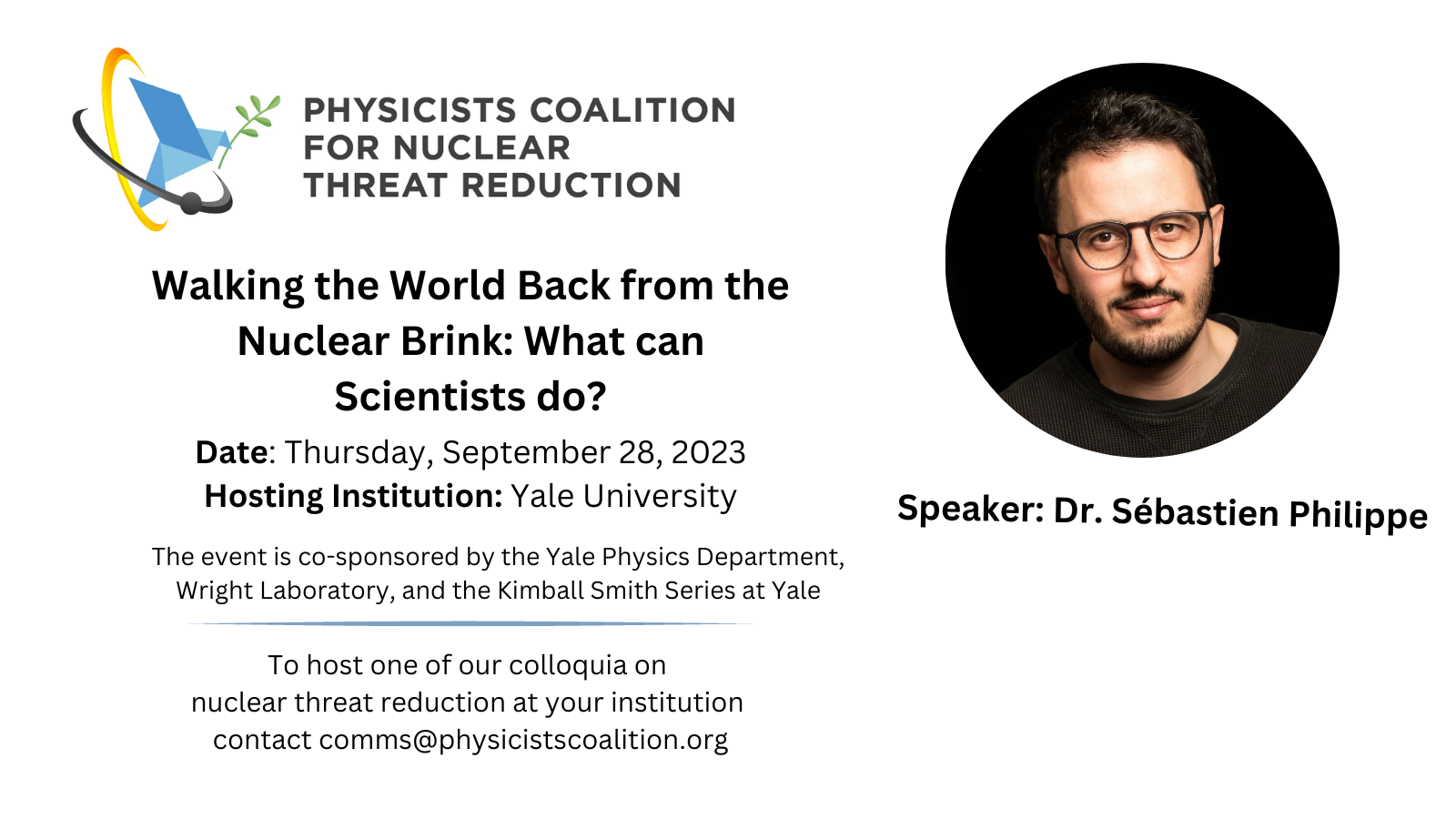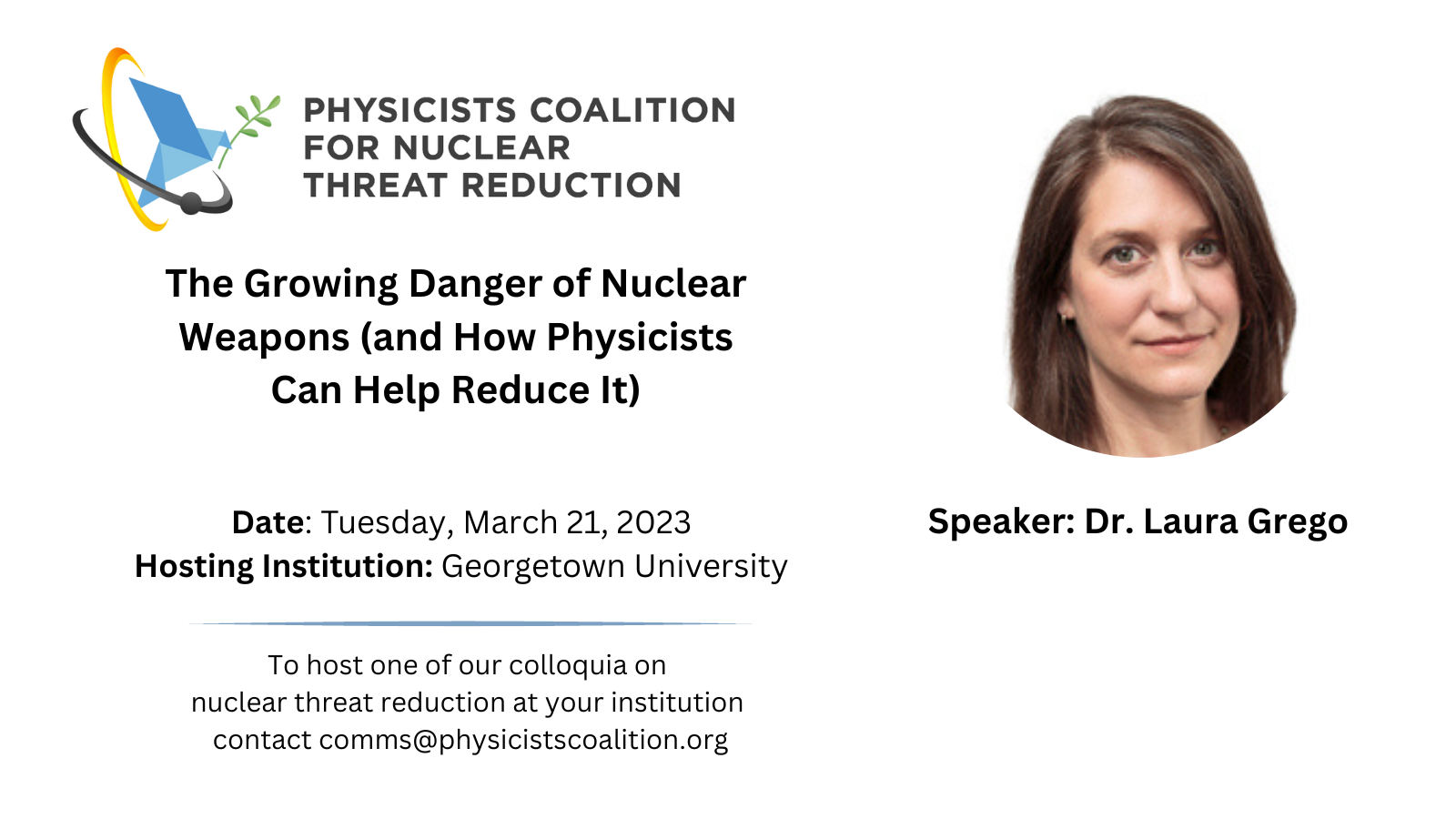
Georgetown University – The Growing Danger of Nuclear Weapons (and How Physicists Can Help Reduce It)
Colloquium Abstract While nuclear weapons might sound like Cold War relics, in truth the immense risks they pose to all humanity are still very much with us. In fact, trends indicate the risks may be growing with the abandonment of arms control agreements and the development of new types of strategic weapons. Physicists have historically […]

